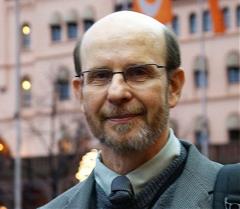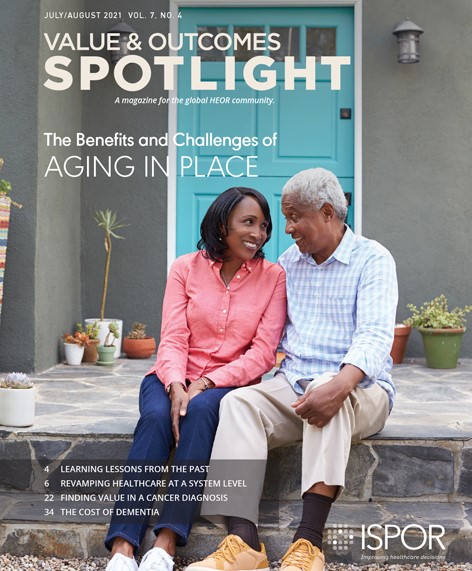Aging Effects and Promising Technologies: A conversation with Jerson Laks, MD, PhD
Section Editor: Marisa Santos, PhD, MD, Instituto Nacional de Cardiologia, Rio de Janeiro, Brazil

I spoke to Professor Jerson Laks, MD, PhD, an expert in dementia and neuropsychology and Coordinator at the Centre for Alzheimer’s Disease and Related Disorders at the Universidade Federal do Rio de Janeiro, Rio de Janeiro, Brazil. He has authored or coauthored numerous papers on the subject of aging, including looking at how geriatric depression is tied to the development of Alzheimer’s disease, the connection between early academic performance and dementia prevention, and burnout in caregivers of patients with Alzheimer’s disease.
Dementia is underdiagnosed all over the world. We have a lot of work to do to improve dementia recognition in patients.
VOS: Aging has been a major driver of resource consumption and healthcare expenditures. Can you talk about the rise in medical demands connected with aging, particularly dementia?
Laks: Dementia’s 5-year incremental cost to the traditional Medicare program is approximately $15,700 per patient. The longer the patient lives, which is, of course, one of the successful goals of the treatment, the more the cost increases because more comorbidities appear and costly measures have to be used.
VOS: Choosing the proper outcomes and measures for the health technology assessment is crucial. Please describe the best method for determining pharmacological benefits in people with cognitive impairments.
Laks: There is no medication to cure the process, that is, to prevent cognitive impairment from progressing. In fact, every available medication for Alzheimer’s disease and cognitive impairment aims at slowing down the progression of the symptoms and signs. This occurs in about 35% of the patients using anticholinesterase inhibitors. We measure the efficiency of the medications, taking into account these results attained on a yearly basis, with minimum or low side effects. We do not measure positive effects, but rather, the lack of negative effects.
VOS: Elderly patients require well-coordinated advanced social and healthcare systems. What are some of the best international examples of successful healthcare and social systems, in your opinion?
Laks: No doubt, the Scandinavian countries and the United Kingdom are leaders in this field. The expenditures are based on the care provided and diagnoses are focused on the early cases in primary care. A whole series of programming and interconnected services for the elderly are then put in place.
VOS: What strategies are more effective in preventing age-related morbidity and mortality?
Laks: Controlling hypertension, diabetes, depression, weight gain in midlife, and stress, and using physical exercise. These measures are able to postpone the start of cognitive symptoms in Alzheimer’s disease and also to control cerebrovascular dementia.
VOS: For the elderly, treatment and diagnosis are critical difficulties. Are you able to comment on these medical practices?
Laks: Dementia is underdiagnosed all over the world. We have a lot of work to do to improve dementia recognition in patients.
VOS: What factors have the most significant impact on the quality of life of the elderly?
Laks: Physical independence is critical for quality of life in the elderly. Also, the ability to deal independently with things like bank accounts, driving the car, and other daily life activities so dear to the person are of importance.
VOS: Which technologies, such as medications, diagnostic tests, and other possibilities, are most promising for patients with Alzheimer’s disease?
Laks: There is a push for early diagnosis of the disease at the preclinical phase. The goal is to diagnose the disease before dementia ensues. So far, a number of tests have been developed, but medication to treat the neuropathological and biochemical changes isn’t available.
VOS: Do you have any experience with novel assisted-living technologies and how they might assist with home aging?
Laks: I have no personal experience with novel assisted-living technologies, which are expensive. Although I know about them and find them quite useful, the cost is certainly something to deter their use in Brazil.

